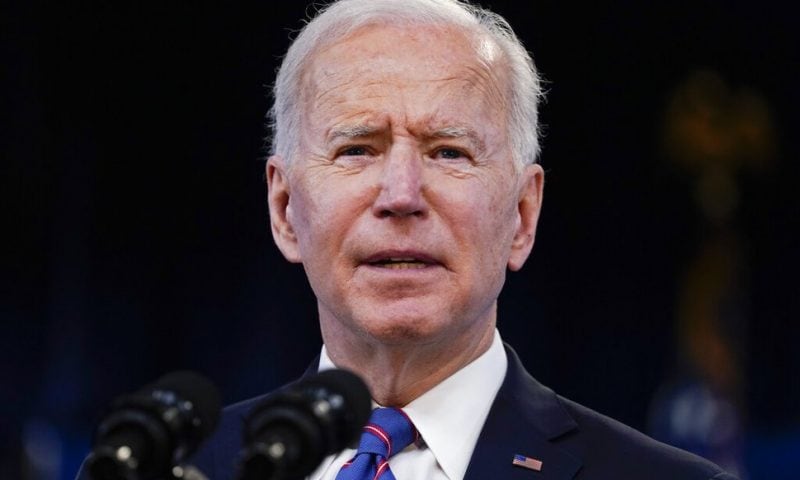Wednesday’s test, which violates international sanctions, was designed to get U.S. attention. How Biden responds will determine how that threat could escalate.
PRESIDENT Joe Biden will not be able to dismiss North Korea’s missile test on Wednesday as he did for an earlier provocative test over the weekend, analysts say, amid Pyongyang’s clear intent to ensure Washington understands the seriousness of its threats.
South Korea, Japan and the U.S. late Wednesday confirmed the launch of missiles from North Korean territory into the Sea of Japan earlier in the day. Japan said the test involved ballistic missiles, which could be capable of carrying a nuclear warhead – and violate international sanctions against North Korea.
The launch represents the first ballistic missile test by North Korea since March 2020 and immediately followed military exercises South Korea conducted with the U.S. this week that infuriate Pyongyang.
And it crosses a line that many had been anticipating for one of the most intractable security threats in East Asia that has stymied American denuclearization efforts in recent years.
“President Donald Trump had been willing to turn a blind eye to North Korea’s ballistic missile launches as long as they were not tests of long-range missiles,” says Jean Lee, director of The Wilson Center’s Korea Program. “But I suspect the Biden administration will confront any confirmed ballistic missile launches that violate U.N. Security Council resolutions.”
Wednesday’s test of ballistic missiles meets that bar, unlike the test over the weekend that involved cruise missiles and that officials at the White House and Pentagon dismissed as a “normal” part of military operations.
The launch also wasn’t as provocative as it could have been. It did not involve any testing of nuclear weapons, which North Korea has not done since 2017. It followed a U.S.-South Korean military exercise – albeit pared down – that historically prompts Pyongyang to demonstrate some act of aggression in return.
And it did not involve the kind of fiery rhetoric from Kim Jong Un or other leaders to capitalize on the predictable international attention from the launch. Indeed, North Korea hadn’t confirmed the launch as of Thursday morning, though its state news service did publish a report about countries that have aspired to “peaceful space programmes” involving test-firing rockets capable of entering the atmosphere – a common ploy countries like North Korea have previously used to justify intercontinental ballistic missile, or ICBM, tests.
However, Pyongyang remains poised to escalate these provocations based on how the U.S. responds, particularly as the Biden administration completes its government-wide review of its policy toward North Korea.
“We should expect the North Koreans to test bigger and more advanced missiles. We should also expect a fiery response when the Biden North Korea policy is announced, which likely will be a pressure strategy to get the Kim regime to give up its nuclear weapons,” says Harry Kazianis, senior director of Korean Studies at the Center for the National Interest. “If that is indeed the case, the stage is set for another round of North Korean ICBM and potentially even nuclear testing – and another U.S.-North Korea showdown.”
Lee says the Biden administration plans to take a different approach than his predecessor, who arranged a series of summits that were broadly attention-grabbing but did not produce any meaningful results.
“Rather than summit diplomacy, I think we can expect sanctions diplomacy,” she says, warning of further threats: “North Korea uses weapons tests strategically, both to make needed improvements to its weapons and to garner global attention. With the United States hinting that it will seek to tighten the sanctions regime, North Korea will be looking to expand its arsenal by ramping up testing.”
The brinkmanship could escalate in the near future, Lee adds, particularly leading up to the Japanese prime minister’s state visit to Washington in early April for a summit with Biden. North Korea tested an ICBM four years ago when then-Prime Minister Shinzo Abe met with Trump.

